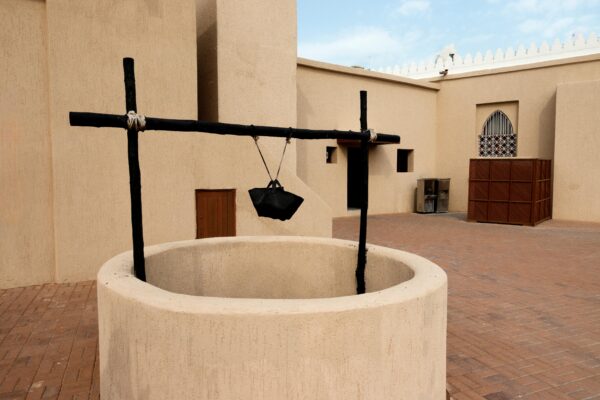
6 Wealth-Building Lessons from Khadijah (RA) Every Muslim Should Know
03 December 2025 8 min read


Ibrahim Khan
Co-founder
4 min read
Last updated on:
Many a happy evening has been spent by most of us on the likes of Ladypool Road, Wilmslow Road, or Whitechapel Road. We tuck into all sorts of food and drink, we are simultaneously appalled by and contribute to the shoddy parking on display, and we wonder aloud why there are so many fried chicken places. But a question recently came our way that could jeopardise all these blood-pressure inducing antics: are buffets even halal?
And, no, it’s not a HFA v HMC debate.
As many of our regular readers will know, Islam forbids gharar, or uncertainty, in a contract. This is due to a bunch of different things. Firstly it just makes sense to be clear on what exactly you’re buying and selling so that you know where you stand. Secondly, it avoids beef later down the line as you both argue over what exactly “I promise to sell you the football strip of the best team in the world” meant. Thirdly it avoids situations where one side is getting a really raw deal and the other side is ripping them off. An example of this would be the fruit machine. Most of the time the gambler will lose out and the casino will win.
Now when it comes to buffets, there is clearly some uncertainty about how much an individual will be able to put away, so the argument goes that it is unclear what exactly is being bought and what is being sold, and therefore the transaction involves gharar and is invalid. You pay a fixed sum for an uncertain quantity of food, and therefore the transaction is uncertain.
Similarly, when we get into a taxi and don’t agree a payment upfront but pay by the meter, again we are entering into an uncertain transaction – especially when you do this in Egypt and then the guy tries to rip you off at the end! And for those of you who have been in a Turkish bath or a paid swimming pool – again it is unclear how much water and how much soap you will avail yourself of – all that is left up to chance.
For the more discerning of you, you will have noted that in fact gharar pervades all aspects of our financial and social lives. That’s what makes life life. This means that there is a degree of gharar to entering into a business – as of course you do not know if it will succeed or not.
But of course it would be absurd to say all this stuff is haram. So how does the Shariah distinguish between cases of gharar that you do want to avoid, and cases of gharar that are acceptable.
Well there are a number of ideas for how you go about doing this, and this is an evolving area of contemporary Islamic finance. Here are three useful rules of thumb to remember:
So we can conclude that buffets are okay – go knock yourself out, hopefully not literally! However, these examples do show the extent to which theoretical Islamic Finance pervades our lives in interesting and relevant ways.
I do have to say that I am currently unsatisfied by the sharpness of the distinction between acceptable and unacceptable gharar. At the moment the thing that acts as the distinguisher is, it seems, essentially common sense. Now that’s not a bad thing, but it does leave things a little broad. I’ll be doing some more digging into this in the coming months so do watch this space for more!
Finally, I’m very excited about a book I’ve recently ordered: The Global Minotaur by former finance minister of Greece, Yanis Varoufakis. It is a powerful discussion on the state of our current global economy, how we ended up here, and what urgent steps we need to pull things around. I’d highly recommend you get hold of a copy.

03 December 2025 8 min read

26 November 2025 6 min read

13 August 2025 12 min read
Leave a Reply